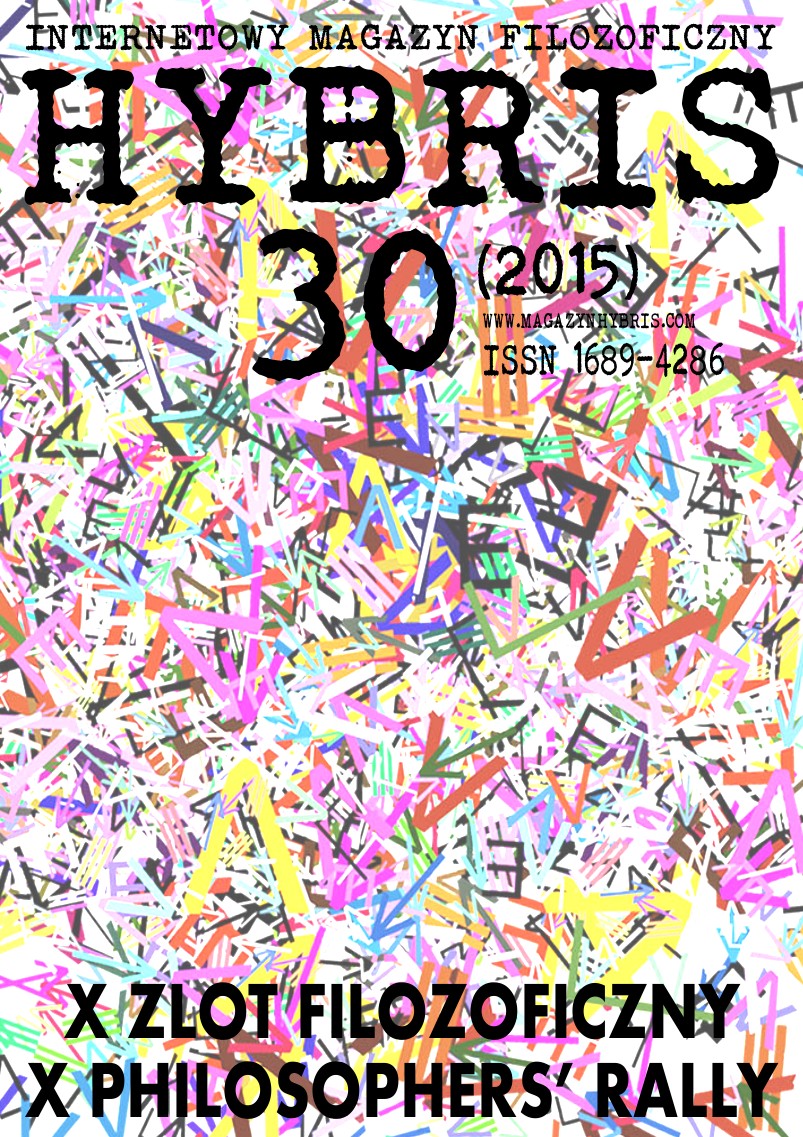Tradition as a communication system. A pragmatic approach
DOI:
https://doi.org/10.18778/1689-4286.30.02Keywords:
rationality, inferentialism, tradition, modernityAbstract
A context of my paper is the debate on reason, tradition and traditional communities, in which this moral and epistemological issues were discussed as a part of general socio-philosophical theory of modernity. In particular I intend to locate my considerations in the context of formal-pragmatic theory of modern communicative rationality developed by Jürgen Habermas and Robert Brandom. I will provide a competitive model of the rationality of tradition by applying a conceptual toolkit of pragmatically oriented analysis to explain practices connected with vocabulary of tradition. I argue that tradition as a communication system has a fully rational structure. My main claim is that communicative structure of tradition has a rational structure of language game. This structure includes defined principles of communication for members of closed tradition-grounded community and rule of inclusion for potential new members.
Firstly I consider closely internal principles of communication within the framework of tradition contrasting them shortly with normative-deontic rules of the postenlightenment idea of pragmatic communication discussed by Jürgen Habermas and Robert Brandom. After that I examine the rule of inclusion — the rule, which mediates between closed system of tradition-based community and his environment.
References
Brandom, Robert, 2008, Between Saying and Doing: Towards an Analytic Pragmatism, Oxford UP.
View in Google Scholar
DOI: https://doi.org/10.1093/acprof:oso/9780199542871.001.0001
Brandom, Robert, 2009, The Reason in Philosophy: Animating Ideas, Harvard UP.
View in Google Scholar
DOI: https://doi.org/10.4159/9780674053618
Giddens, Anthony, 1944, Living in a Post-Traditional Society, [in:] U. Beck, A. Giddens, S. Lash, Reflexive Modernization. Politics, Tradition and Aesthetics in the Modern Social Order, Cambridge: Polity Press, pp. 56–108.
View in Google Scholar
Habermas, Jürgen, 1984, The Theory of Communicative Action, Vol. 1: Reason and The Rationalization of Society, T. McCarthy (trans.), Boston: Beacon Street.
View in Google Scholar
Habermas, Jürgen, 1987, Theory of communicative action, vol. 2: Lifeworld and System: A Critique of Functionalist Reason, T. McCarthy (trans.), Boston: Beacon Press.
View in Google Scholar
Habermas, Jürgen, 1998, A Genealogical Analysis of the Cognitive Content of Morality, [in:] C. Cronin and P. de Greiff (eds.), The Inclusion of the Other. Studies in Political Theory, Cambridge: MIT Press, pp. 3–48.
View in Google Scholar
Kant, Immanuel, 1966, Critique of Pure Reason, W. S. Pluhar (trans.), Indianapolis: Hackett Publishing Company.
View in Google Scholar
MacIntyre, Alasdair, 1988, Three rival versions of moral enquiry: encyclopedia, genealogy, and tradition, London: Duckworth.
View in Google Scholar
MacInytre, Alasdair, Whose Justice? Which Rationality?, Indiana: University of Notre Dame Press.
View in Google Scholar
Shils, Edward, 1981, Tradition, Chicago: University of Chicago Press.
View in Google Scholar
Downloads
Published
How to Cite
Issue
Section
License

This work is licensed under a Creative Commons Attribution-NonCommercial-NoDerivatives 4.0 International License.






